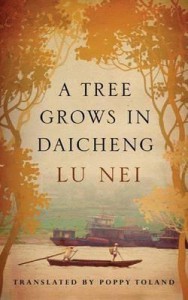This week, our Editors-at-Large take us around the globe for updates on the world’s literary scenes. From Shanghai’s lively summer book fair and three exciting new titles from the Chinese; to literacy- and readership-boosting campaigns in Sweden and Denmark; the longlist for the best North Macedonian translation prize; and this year’s Struga Poetry Evening Festival, read on to learn more.
Hongyu Jasmine Zhu, Editor-at-Large, Reporting for China
From August 13–19, the Shanghai Book Fair welcomed over 382,000 readers with citywide events celebrating libraries and independent bookstores. Though I wasn’t in the country, WeChat livestreams—now second nature to Chinese publishers—allowed me to tune in and discover three books I’m eager to pick up.
First, Dong Li’s Chinese translation of Victoria Chang’s poetry collection 记逝录, Obit, was launched by China Normal University Press. “My Father’s Frontal Lobe—died unpeacefully of a stroke…” reads the opening line; Chang said that it foregrounds both disintegration and the possibilities of body and language. A stroke strips the body of movement and speech, pulmonary fibrosis hardens the lung until no air enters, language strains against enormous sorrow; yet Chang writes toward that very inadequacy, seeking new articulations. Li reflected that translation is a liminal language (折中的语言). While writing strives toward the far shore, translation stands midstream, crafting a new language attuned to currents not entirely one’s own.




